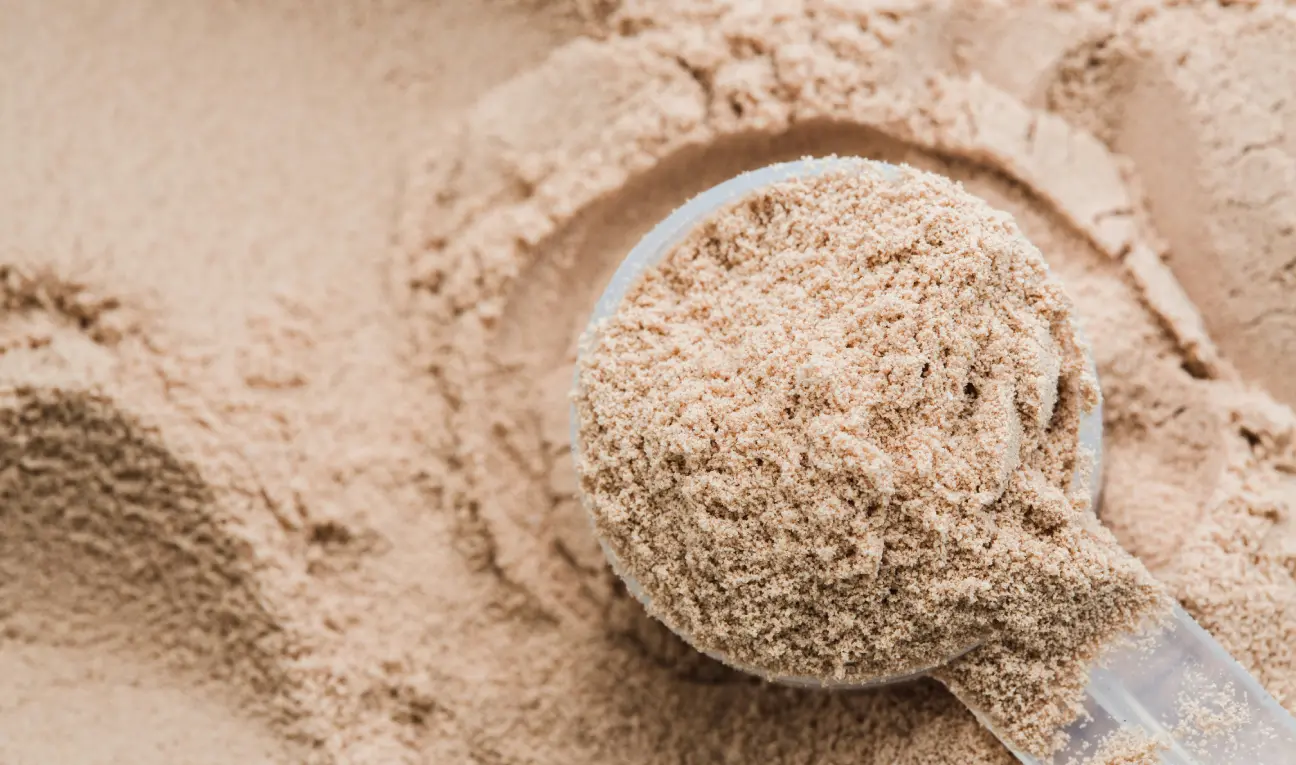
As more people look for healthier, ethical, and sustainable food options, plant-based protein has become very important for food, drink, and supplement makers. If you are making a new product or buying ingredients for one you already have, it can feel overwhelming. We are here to help you understand the key points. This way, you can successfully buy plant-based proteins for your business.
Check out plant-based proteins on Nutrada and find trusted suppliers who provide bulk powders, isolates, and concentrates made for industrial use.
Plant-based protein comes from plants such as beans, grains, seeds, and nuts. Unlike animal proteins, these sources are more sustainable. They are suitable for vegan, vegetarian, and natural products. Some common types include pea protein, soy protein, rice protein, and hemp protein. For a full list we advise you to review our proteins page.
B2B buyers and food producers are looking for vegetarian protein options and vegan protein sources because:
By teaming up with suppliers that focus on plant-based protein, food brands can meet changing consumer demands and strengthen their supply chain.
The most traded and requested plant-based proteins in B2B sourcing include:
Plant-based proteins have important advantages for food makers. They do not contain dairy, making them safe for people who are lactose intolerant or have dairy allergies. Additionally, many plant proteins are more sustainable than animal-based ones. They use less water and land. According to a report by MarketsandMarkets, the global plant-based protein market is projected to grow from USD 14.3 billion in 2024 to USD 20.5 billion by 2029.
Plant proteins have some challenges. An important issue is that many plant-based proteins do not have all the essential amino acids, so they are not complete protein sources on their own. To solve this, manufacturers often mix different plant proteins together. Another challenge is how well our bodies can digest these proteins. Some plant proteins have antinutrients that can affect how our bodies absorb nutrients. To make plant proteins easier to digest and to help our bodies use them better, methods like fermentation and sprouting are commonly used.
Whey protein is a mainstay in sports and clinical nutrition because it absorbs quickly and has a full range of amino acids. However, plant-based protein is becoming more popular as brands focus on vegan, allergen-free, and sustainable choices.
Plant proteins such as pea, soy, and rice can perform similarly to whey when mixed or separated correctly. While whey dissolves better and has more leucine, many new plant-based options are improving in texture and function.
For many business buyers, the choice depends on what consumers want, regulatory requirements, and how products are labeled.
Important considerations:
Soy and pea proteins are the most popular choices for plant-based protein powders. They are well-researched and considered good options. Soy protein is a complete protein, so it contains all the essential amino acids. However, some people have concerns about GMOs and soy allergies. Because of this, many brands choose pea protein instead. Pea protein is easy to digest, has a good amino acid profile, and can be used in many food and drink products.
For brands looking to create best-tasting vegan protein powders, blending different sources (e.g., pea and rice) helps improve both flavor and amino acid completeness.
Pea and soy proteins are the most complete and widely used.
They often have an incomplete amino acid profile and lower digestibility.
Pea protein is a top choice due to its multi-use and neutral taste.
Brands often blend pea and rice proteins with natural flavor enhancers to improve taste.